
The Cure are an English rock band formed in 1978 in Crawley, West Sussex. Throughout numerous lineup changes since the band's formation, guitarist, lead vocalist, and songwriter Robert Smith has remained the only constant member, though bassist Simon Gallup has been present for all but about three years of the band's history. Their debut album, Three Imaginary Boys (1979), along with several early singles, placed the band at the forefront of the emerging post-punk and new wave movements that were gaining prominence in the United Kingdom. Beginning with their second album, Seventeen Seconds (1980), the band adopted a new, increasingly dark and tormented style, which, together with Smith's stage look, had a strong influence on the emerging genre of gothic rock as well as the goth subculture that eventually formed around the genre.
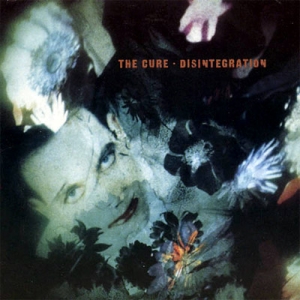
Disintegration is the eighth studio album by English rock band the Cure, released on 2 May 1989 by Fiction Records. The band recorded the album at Hookend Recording Studios in Checkendon, Oxfordshire, with co-producer David M. Allen from late 1988 to early 1989.
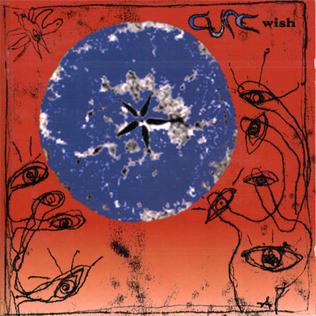
Wish is the ninth studio album by English rock band the Cure, released on 21 April 1992 by Fiction Records in the United Kingdom and Elektra Records in the United States. Wish was the most commercially successful album in the band's career, debuting at number one in the UK and number two in the US, where it sold more than 1.2 million copies.

Galore: The Singles 1987–1997 is the second singles compilation by The Cure and was released on 28 October 1997. It contains singles from the years 1987–1997. The song "Wrong Number" is the only new song on the album.
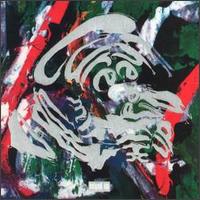
Mixed Up is a remix album by English rock band the Cure, released on 20 November 1990 by Fiction Records. The songs are remixes of some of their hits, reflecting the popularity of remixing of existing songs and dance culture of the late 1980s and early 1990s. In 2018, a sequel was released titled Torn Down.

Standing on a Beach is a greatest hits album by English rock band the Cure, released in the United States on 15 May 1986 by Elektra Records and in the United Kingdom on 19 May 1986 by Fiction Records, marking a decade since the band's founding in 1976. The album's titles are both taken from the opening lyrics of the Cure's debut single, "Killing an Arab".

"Lovesong" is a song by English rock band the Cure, released as the third single from their eighth studio album, Disintegration (1989), on 21 August 1989. The song saw considerable success in the United States, where it reached the number-two position in October 1989 and became the band's only top-10 entry on the Billboard Hot 100. In the United Kingdom, the single charted at number 18, and it peaked within the top 20 in Canada and Ireland.
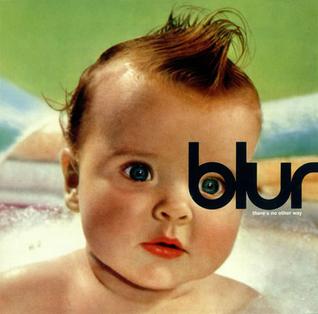
"There's No Other Way" is a song by English band Blur, released on 15 April 1991 as the second single from their debut album Leisure. "There's No Other Way" peaked at number five on the UK Singles Chart. It was also their first charting song in the US, reaching number 82 on the Billboard Hot 100, and also reached number five on the US Billboard Modern Rock Tracks.

"Mint Car" is a song by English rock band the Cure, released as the second single from their tenth studio album Wild Mood Swings in June 1996. It reached the top 20 in Finland and Iceland and peaked at number 31 on the UK Singles Chart.

"Pictures of You" is a song by English rock band the Cure. It was released on 19 March 1990 by Fiction Records as the fourth and final single from the band's eighth studio album, Disintegration (1989). The song has a single version which is a shorter edit of the album version. The single reached No. 24 on the UK Singles Charts.

"Personal Jesus" is a song by the English electronic music band Depeche Mode. It was released as the lead single from their seventh studio album, Violator (1990), in 1989. It reached No. 13 on the UK Singles Chart and No. 28 on the US Billboard Hot 100. The single was their first to enter the US top 40 since 1984's "People Are People" and was their first gold-certified single in the US. In Germany, "Personal Jesus" is one of the band's longest-charting songs, staying on the West German Singles Chart for 23 weeks.
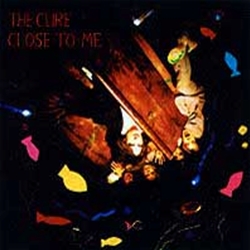
"Close to Me" is a song by English rock band the Cure, released in September 1985 as the second and final single from their sixth album, The Head on the Door.

"Hot Hot Hot!!!" is a single by British rock band the Cure released on 8 February 1988. It is taken from their 1987 album Kiss Me, Kiss Me, Kiss Me. The song reached number 45 in the UK, whereas it was more successful in Ireland where it reached number 18, and in Spain where it reached the Top 10.

"Lullaby" is a song by English rock band the Cure from their eighth studio album, Disintegration (1989). Released as a single on 10 April 1989, the song is the band's highest-charting single in their home country, reaching number five on the UK Singles Chart. It additionally reached number three in West Germany and Ireland while becoming a top-10 hit in several other European countries and New Zealand. The music video, directed by Tim Pope, won the British Video of the Year at the 1990 Brit Awards.

"Never Enough" is a song by English rock band the Cure, released as a single in September 1990 from their 1990 remix album, Mixed Up. The song topped the US Billboard Modern Rock Tracks chart, reached number three in Finland, and peaked within the top 20 in Germany, Ireland, New Zealand, Spain, and the United Kingdom.
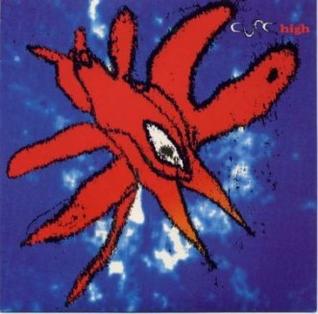
"High" is a song by English rock band the Cure, released as the lead single from their ninth album, Wish (1992), on 16 March 1992. The track received mostly positive reviews and was commercially successful, reaching number one on the US Billboard Modern Rock Tracks chart, number six on the Irish Singles Chart, and number eight on the UK Singles Chart. It charted within the top five in Portugal, where it peaked at number two, and in Australasia, reaching number five in Australia and number four in New Zealand; it is the band's highest-charting single in both countries.

"Friday I'm in Love" is a song by British rock band the Cure. Released as the second single from their ninth studio album, Wish (1992), in May 1992, the song became a worldwide hit, reaching number six in the UK and number 18 in the United States, where it also topped the Modern Rock Tracks chart. It also won the award for European Viewer's Choice for Best Music Video at the 1992 MTV Video Music Awards.

"The 13th" is a song by English rock band the Cure, released as the first single from the band's 10th studio album, Wild Mood Swings (1996), on 22 April 1996. The song reached the top 20 in several territories, including Finland, Sweden, the United Kingdom, and Wallonia. It charted the highest in Hungary, where it reached number two, and in Italy, where it peaked at number five.

The English rock band the Cure has released fourteen studio albums, six live albums, two remix albums, seven compilation albums, eight box sets, twelve extended plays, and forty-seven singles on Fiction Records and Geffen Records. They have also released twelve video albums and forty-four music videos.

"Hooligan's Holiday" is a song by American heavy metal band Mötley Crüe, released on their 1994 eponymous album. The lyrics to the song were written by vocalist/rhythm guitarist John Corabi and bassist Nikki Sixx, while the music was written by Corabi, Sixx, drummer Tommy Lee and guitarist Mick Mars. It was the first song recorded by John Corabi for the album.




















